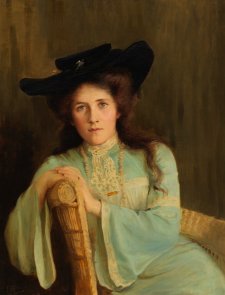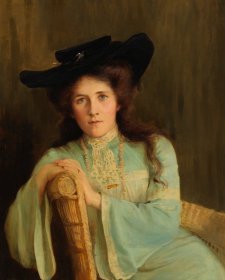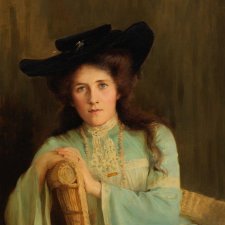Lady Deborah Vernon Hackett (1887–1965) was a mining company director and philanthropist. She grew up in Western Australia, where in 1905, aged eighteen, she married 58-year-old John Winthrop Hackett, newspaper proprietor and politician. Together they had five children. During the First World War she raised funds for the war effort and wrote The Australian Household Guide, the profits from which went to various charities. Widowed in 1916, she moved to Adelaide and married Frank Moulden, who was made Mayor of Adelaide a few years later. As Lady Mayoress from 1920 to 1922, she raised £100,000 for Adelaide's charities and presided over the local branch of the National Council of Women. Over the course of the 1920s Lady Moulden became interested in tantalite, a scarce mineral. Intrepidly visiting potential sites in in Western Australia and the Northern Territory, she became convinced of its viability as an export, and travelled to the USA to secure a contract to supply ore. She incorporated Tantalite Ltd while living in London in 1932, and returned to Australia to form a syndicate to mine wolfram in Central Australia. During the Second World War her tantalite was used to make radar equipment. After Frank died in 1932 she was awarded an honorary doctorate from the University of Western Australia. Four years later she married barrister Basil Buller Murphy; henceforth known as Dr Buller Murphy, she lived in Toorak, raising funds for the women's auxiliaries of various hospitals and serving on diverse welfare committees. They moved to an orchard property named 'Lordello' at Kilsyth in the Dandenong Ranges after the war. Her third husband wrote a book about her interests in tantalite called A Lady of Rare Metal (1949). In 1958 she published a book of stories of the Dordenup Aboriginal people who she had known when young. She died at home in Kilsyth and was buried alongside her parents in Perth.







